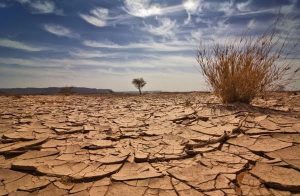Trouble is brewing for the world’s beer drinkers, with climate change set to cause ‘dramatic’ price spikes and supply shortages, a new research has disclosed.
Titled ‘Decreases in global beer supply due to extreme drought and heat’, the research published in the October 2018 edition of the journal Nature Plant, however the Guardian of UK obtained its content.
It explained that extreme heatwaves and droughts will increasingly damage the global barley crop, meaning a common ingredient of the world’s favourite alcoholic beverage will become scarcer.
According to it, key brewing nations are forecast to be among the worst hit, including Belgium, the Czech Republic and Ireland.
The researchers, according the Guardian, said that compared with life-threatening impacts of global warming such as the floods and storms faced by millions, a beer shortage may seem relatively unimportant, but they said it would affect the quality of life of many people.
“There is little doubt that for millions of people around the world, the climate impacts on beer availability and price will add insult to injury,” said Prof Dabo Guan at the University of East Anglia, one of the research team.
“There is something fundamental in the cross-cultural appreciation of beer. If you still want to have a couple of pints of beer while you watch the football, then climate change (action) is the only way out. This is the key message,” Guan added.
The research reportedly used climate models to examine the impact of extreme weather on barley yields over the next 80 years. The team then used economic models to estimate the impact on beer supply and price in different nations.
If carbon emissions are not curbed, the analysis found that beer consumption will fall by about a third in Ireland, Belgium and the Czech Republic. In the UK, a quarter fewer pints would be sunk, with 14 per cent fewer bottles being opened in the US.
In China, now the world’s biggest beer consumer, consumption is forecast to fall by nine per cent. In Australia, just seven per cent fewer cold ones would be downed, partly because it is one of few places where climate change may make barley growing easier in some regions. But, globally which includes Nigeria, the cut would be 16 per cent.
Accordingly, even in the best-case climate scenario, with rapid and deep cuts in greenhouse gases, beers drunk in Ireland, Belgium and the Czech Republic would fall between nine per cent and 13 per cent, with similar drops in Canada and Germany.
Looking at the impact on price, the research found that Poland’s beer drinkers would be hardest hit in the worst-case scenario, with the cost rising almost fivefold.
In Ireland, Belgium and the Czech Republic, prices would double. These nations, it explained would be most affected because they brew and drink a lot of beer and import most of their brewing barley.
It stated that only about a sixth of the world barley harvest is used for beer – most is fed to livestock, adding however that researchers found that the economics of the market mean hungry animals are prioritised when the grain is in short supply.
This thus means disproportionately large decreases in barley for brewing, “ultimately resulting in dramatic regional decreases in beer consumption and increases in beer prices.”
“Future climate and pricing conditions could put beer out of reach for hundreds of millions of people around the world,” said Prof Steven Davis, at the University of California, Irvine, and one of the research team.
Guan, equally said uncertainties and assumptions made in the study mean the price rises and supply shortages calculated are not intended to be precise predictions but to illustrate the impact of climate change. He said it is clear from the research that global warming will make beer more expensive and less available.





